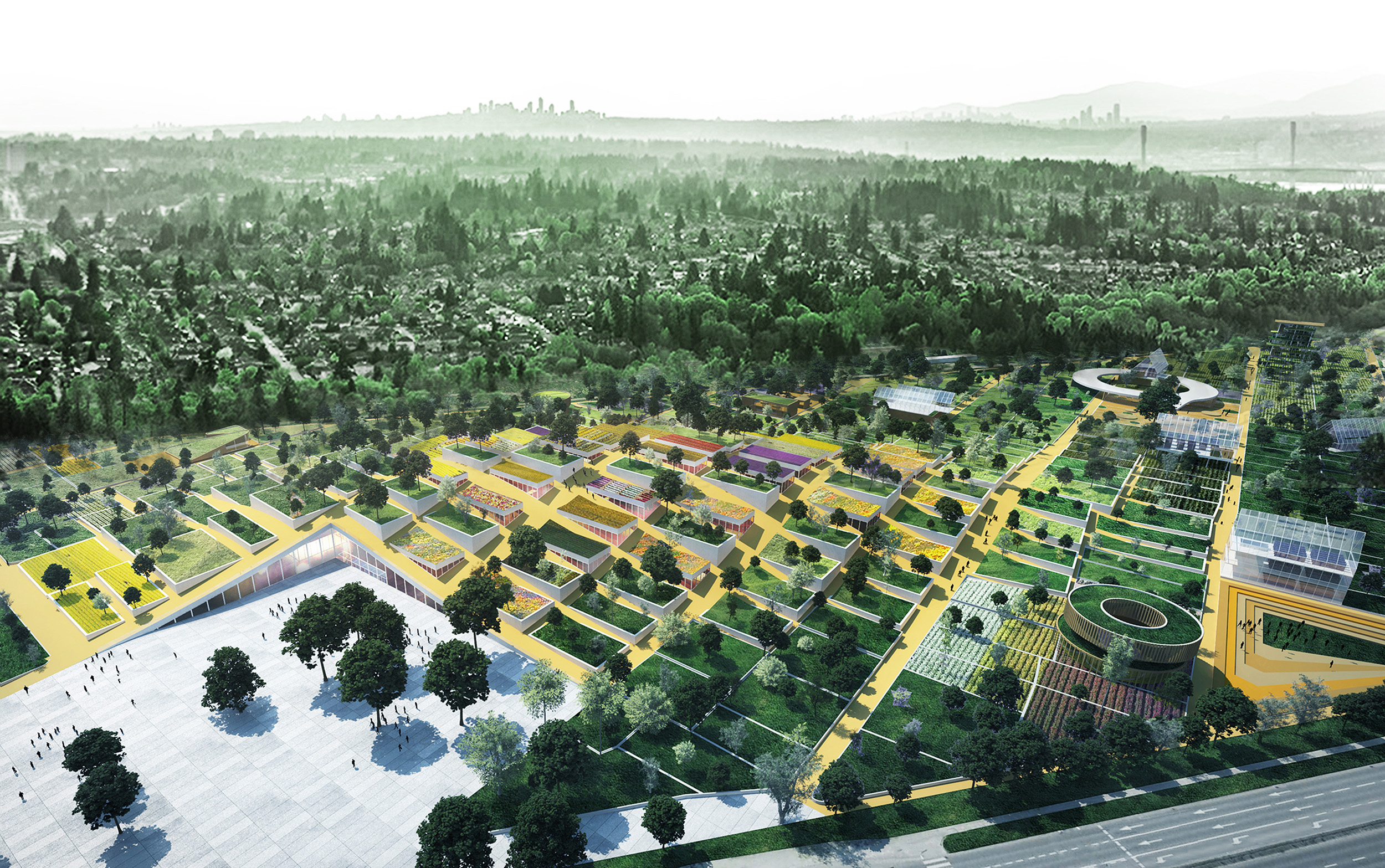
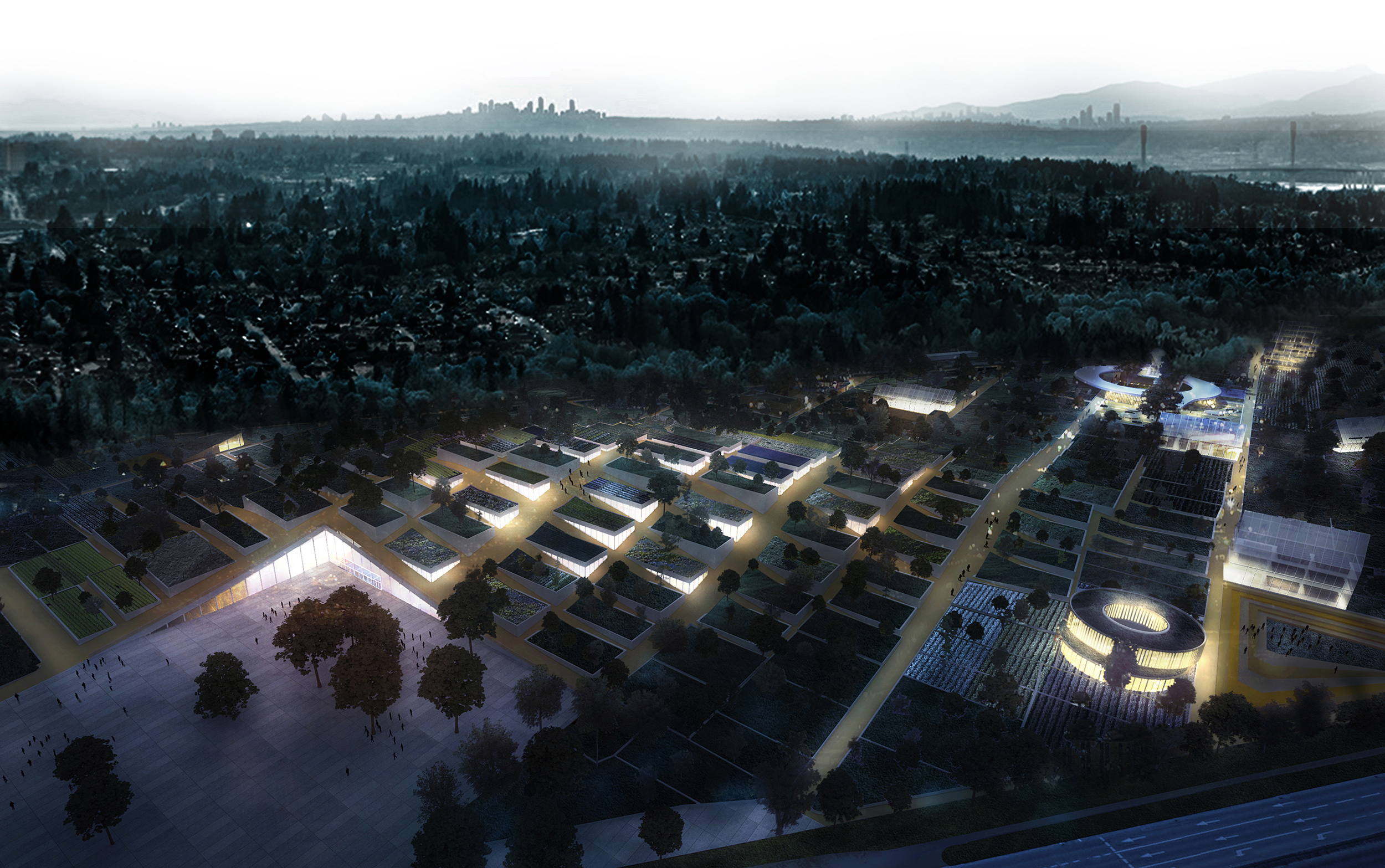
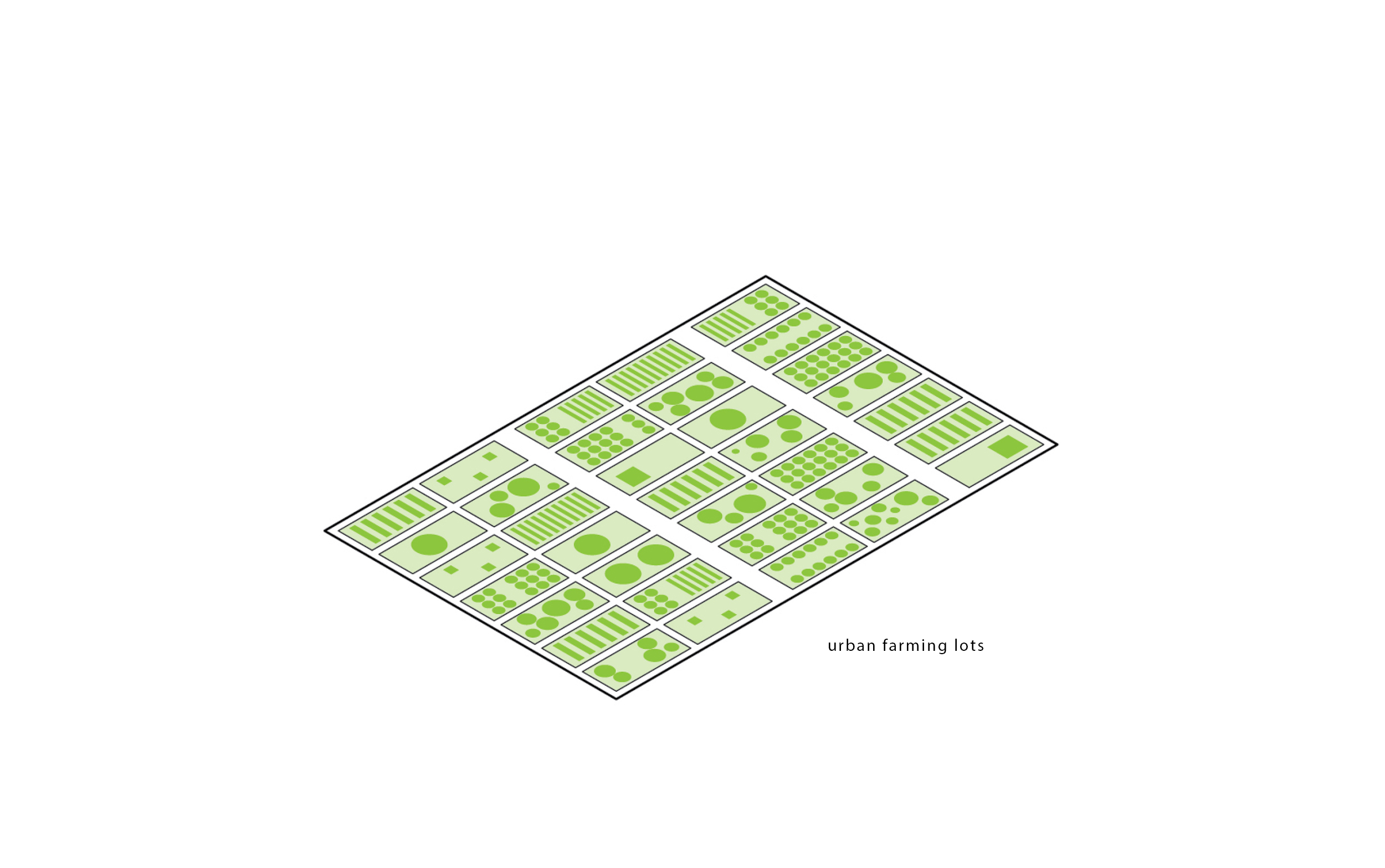
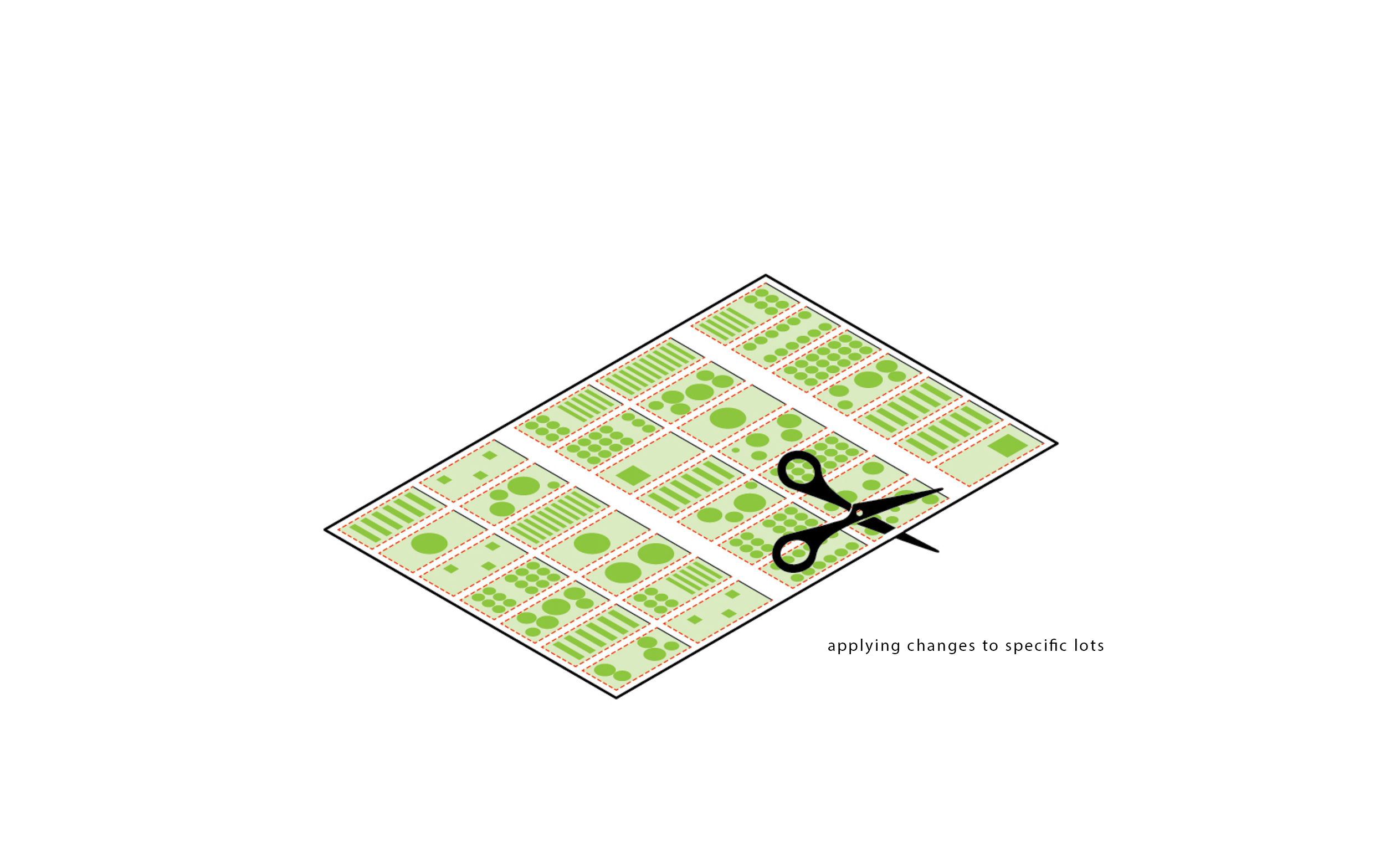
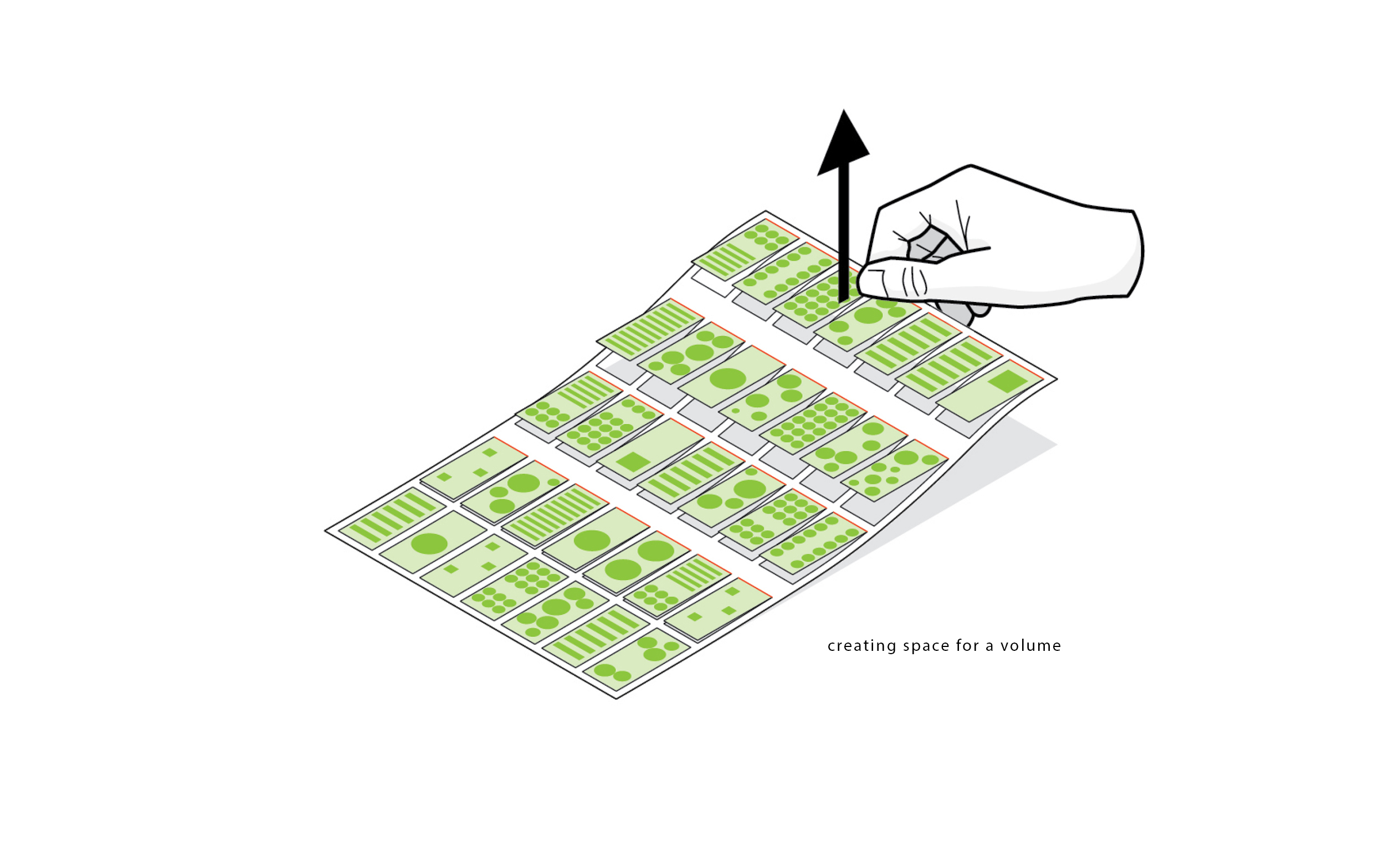

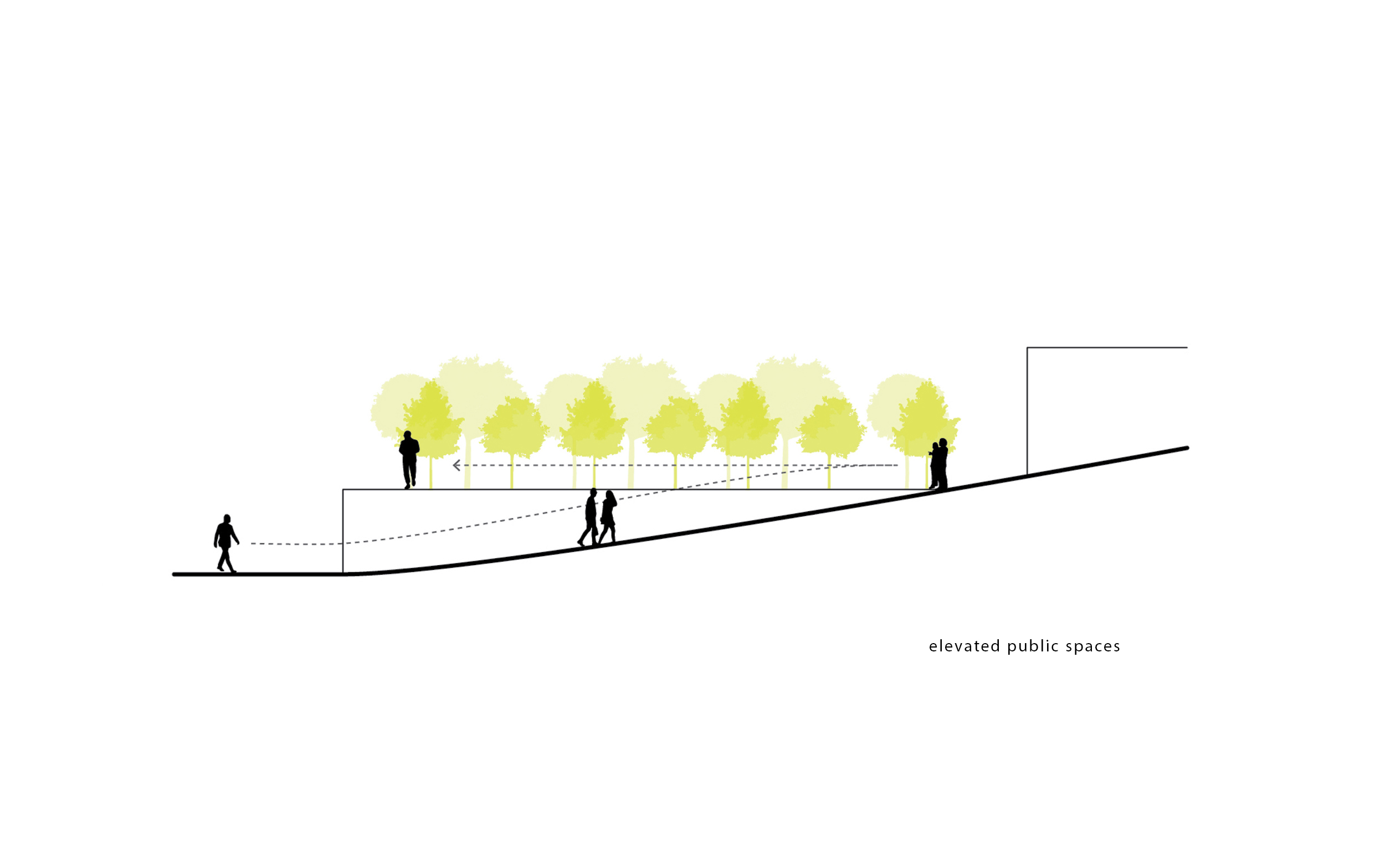
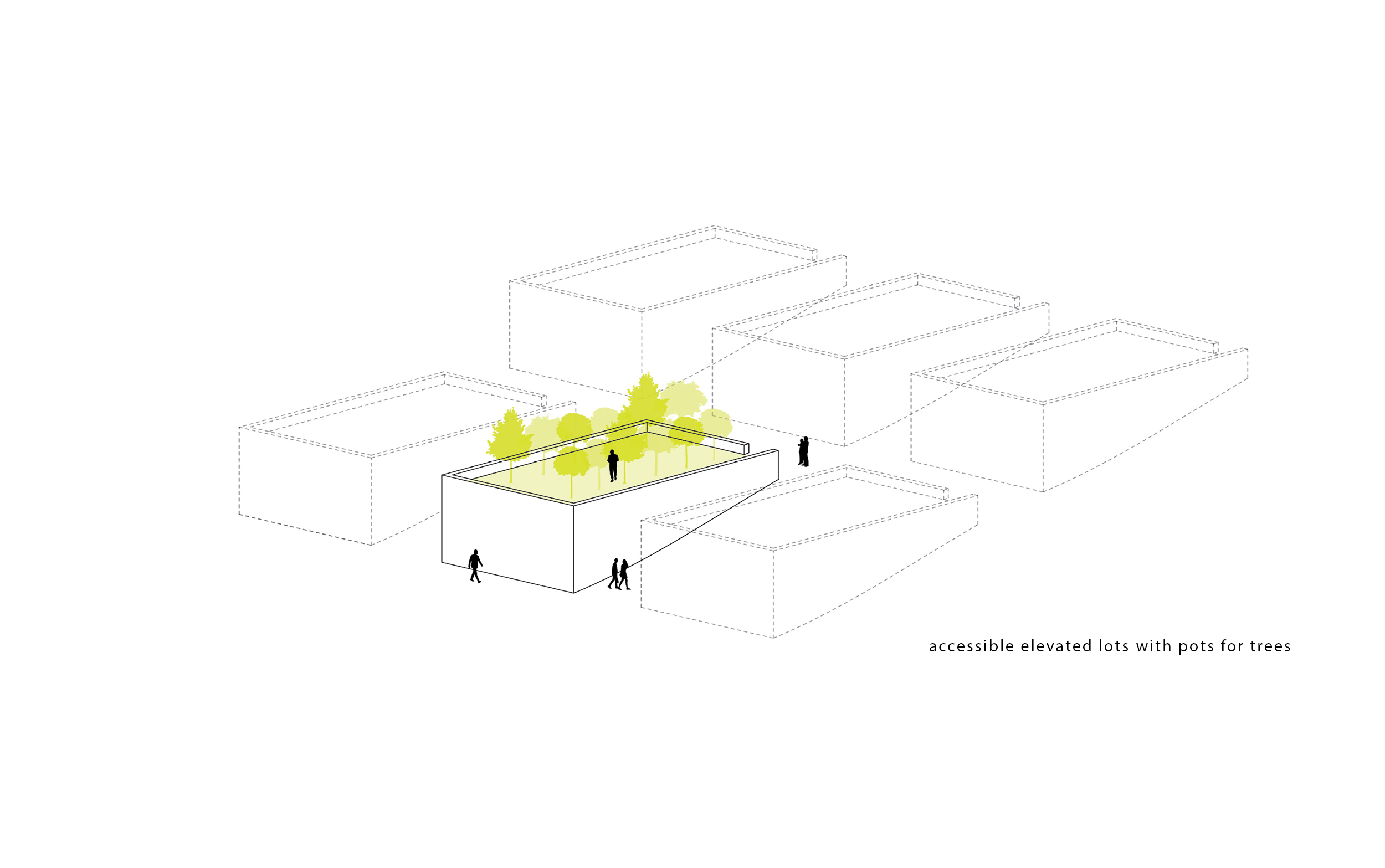
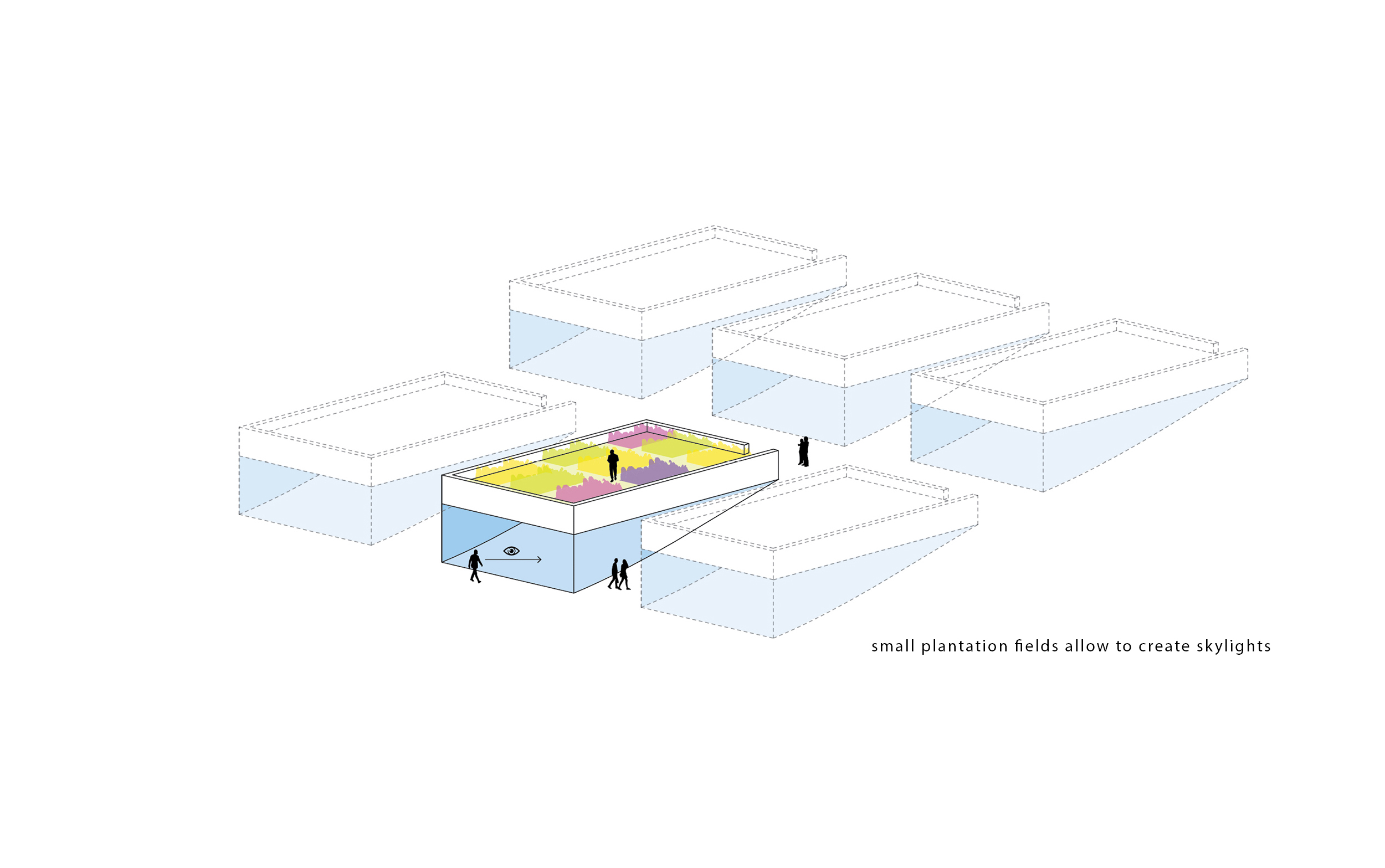
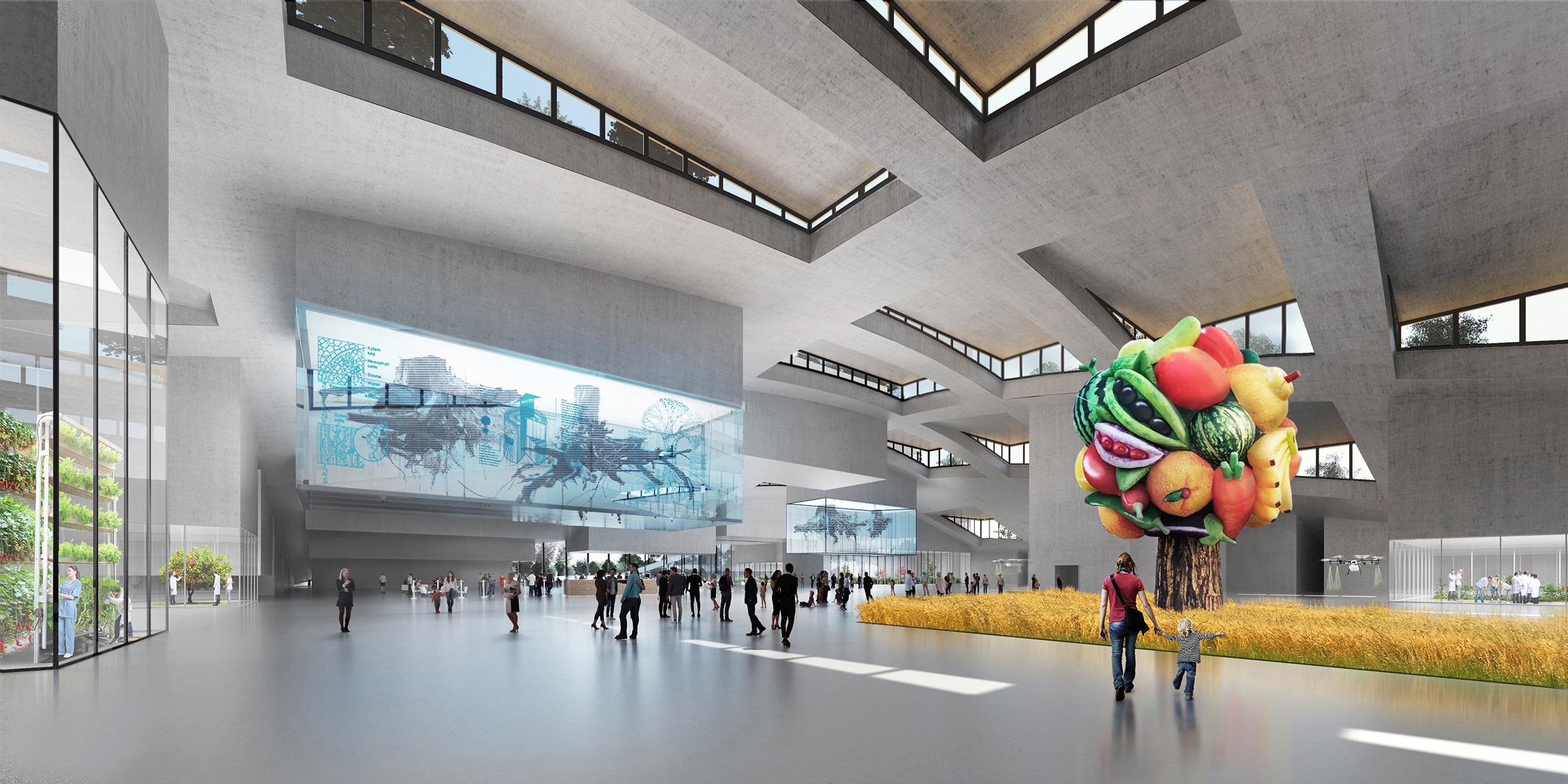
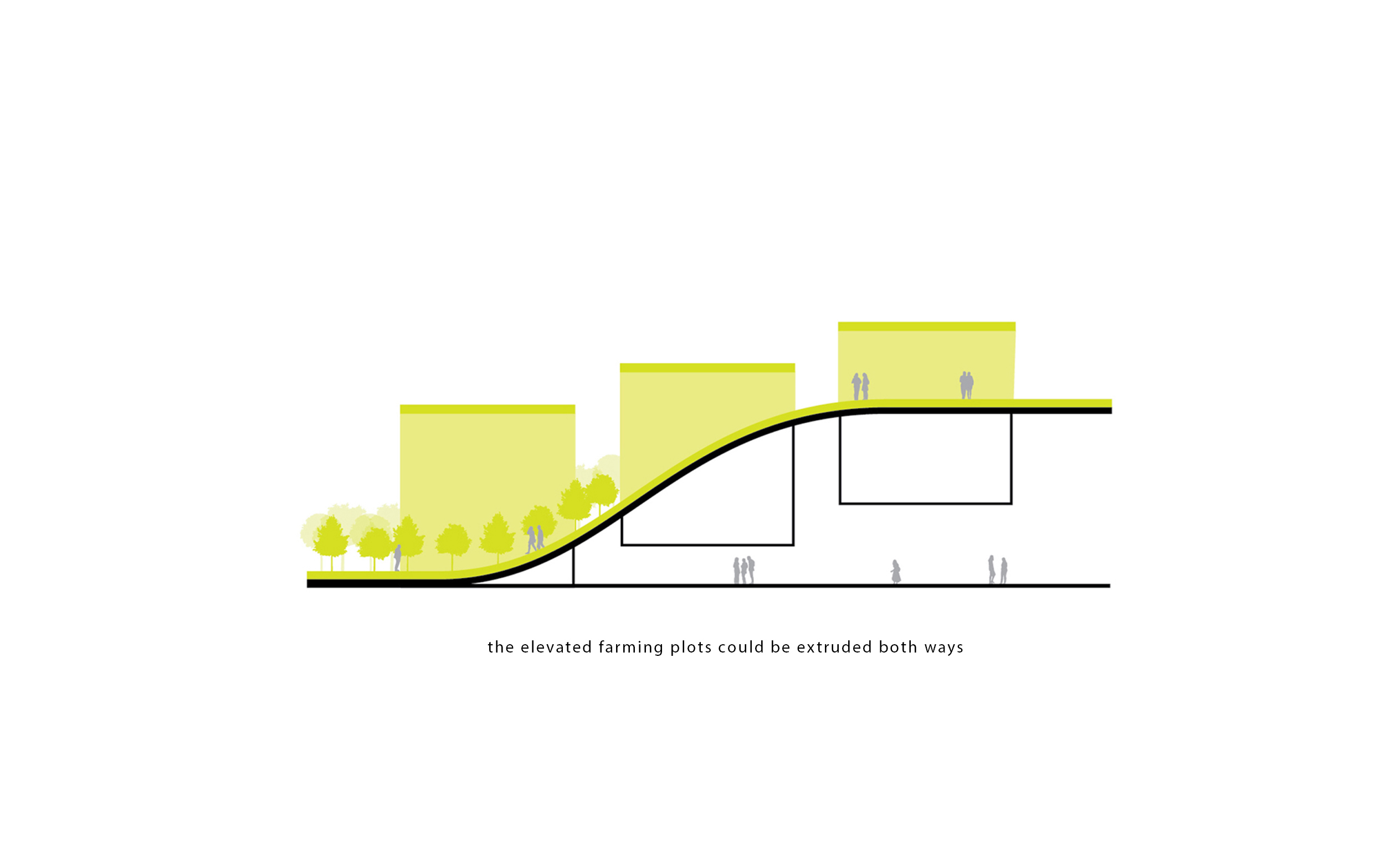
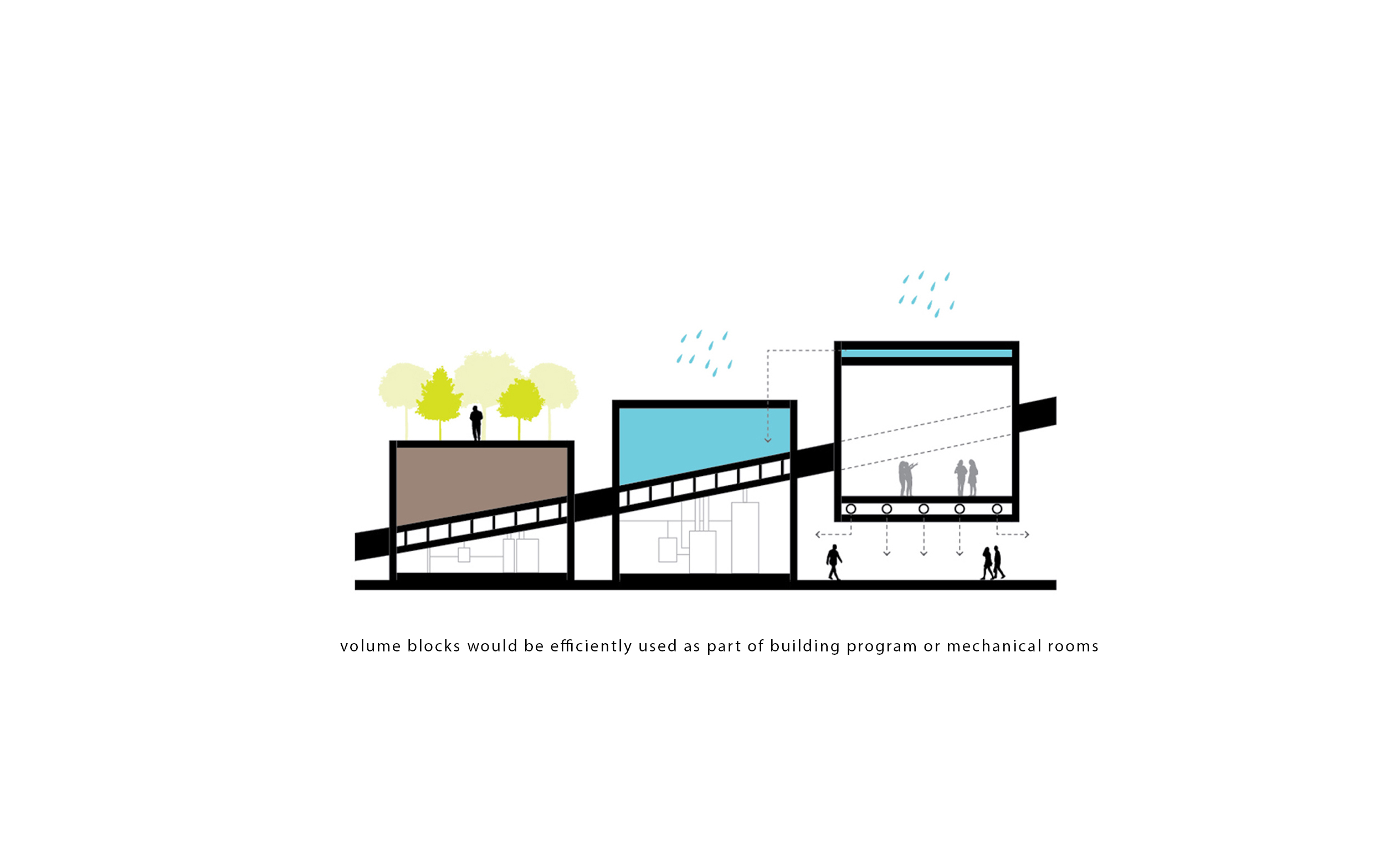
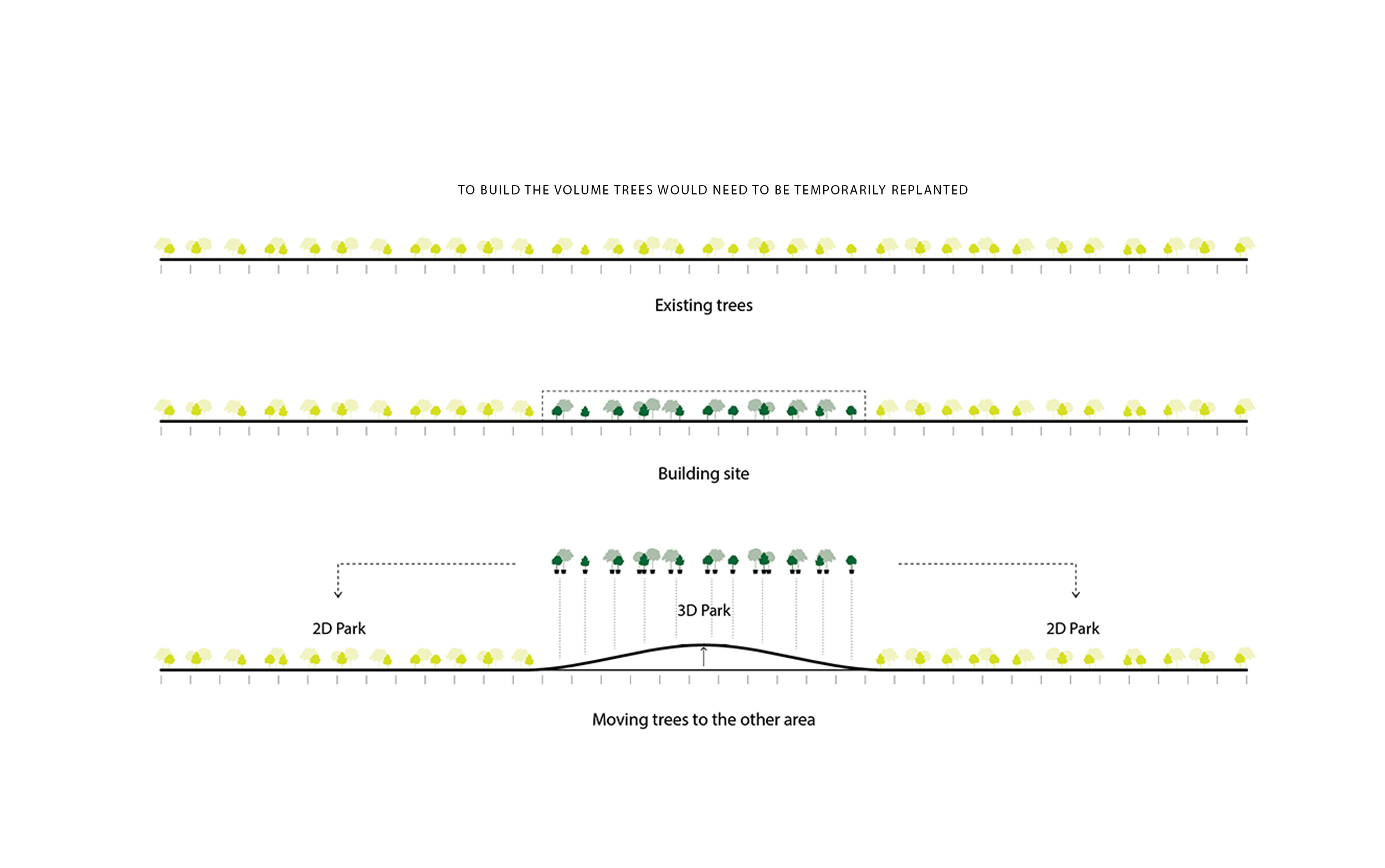
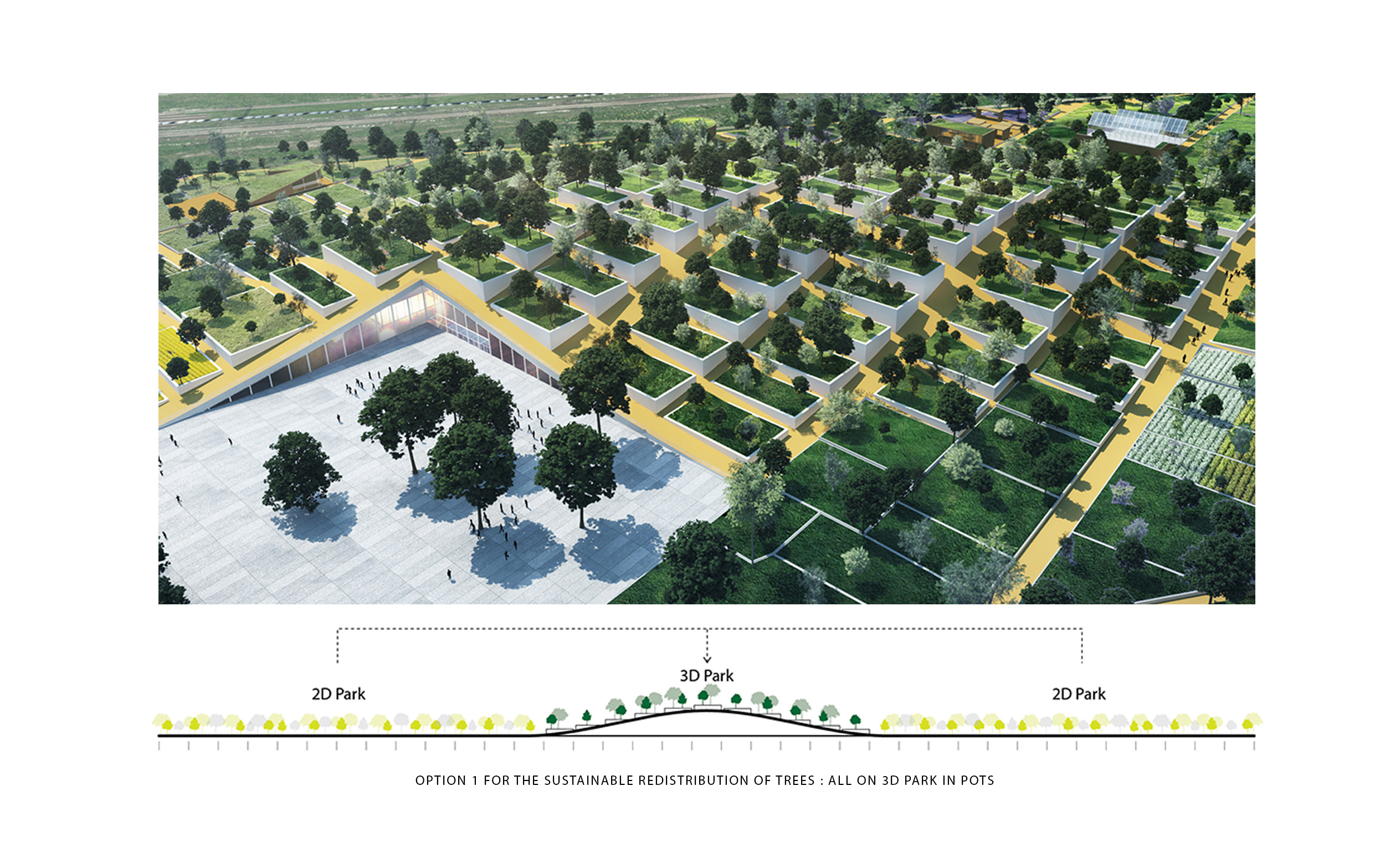
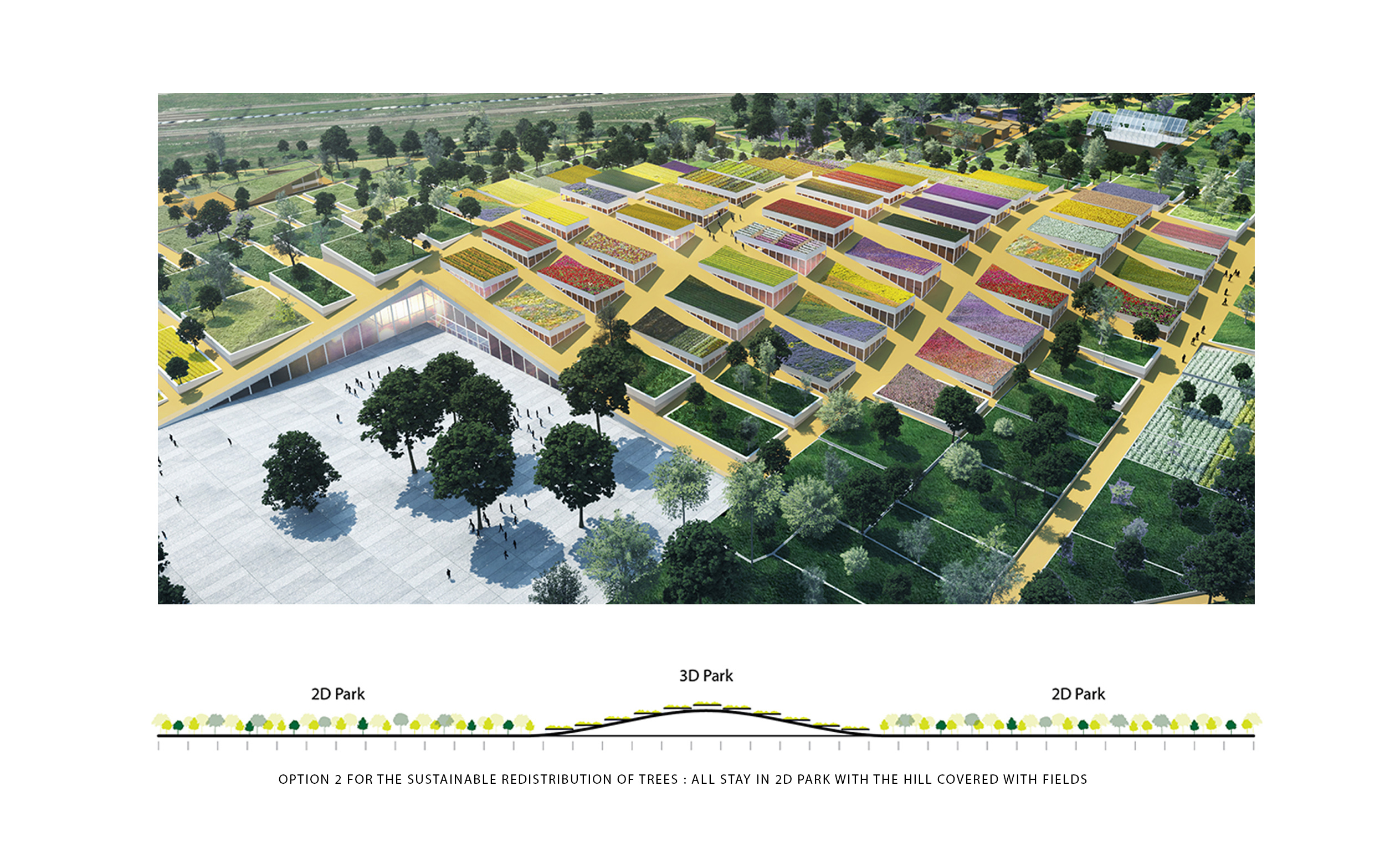
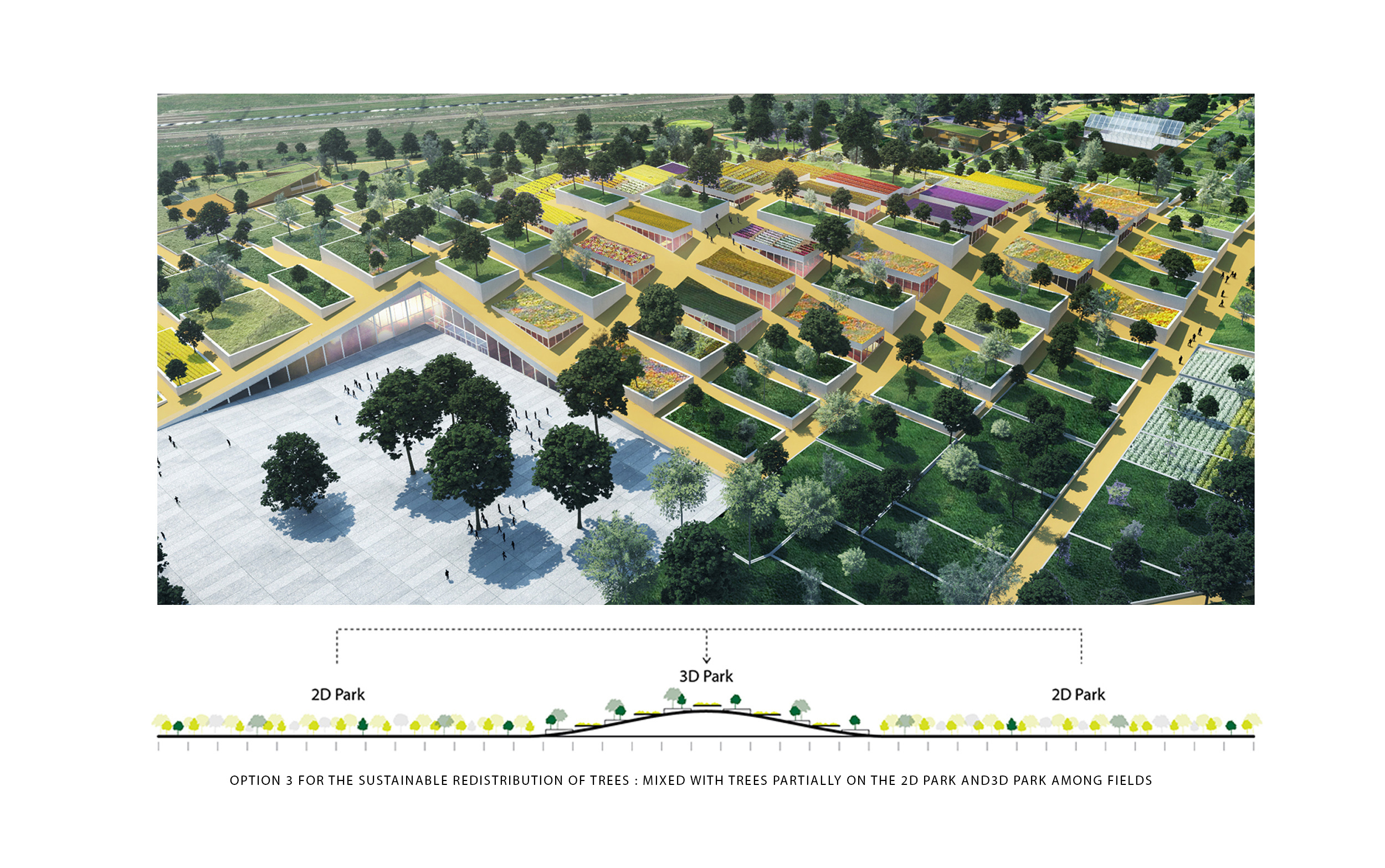
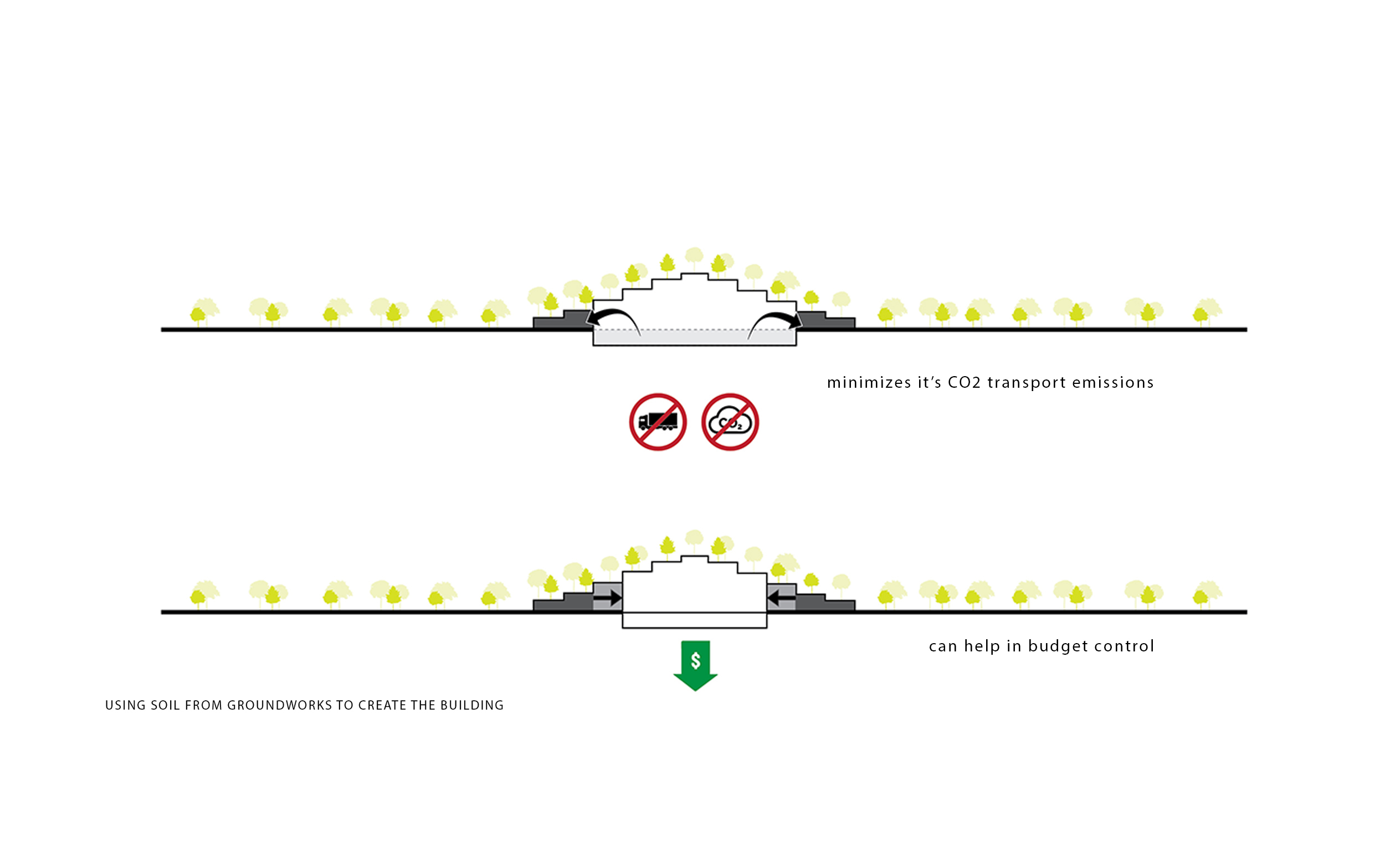
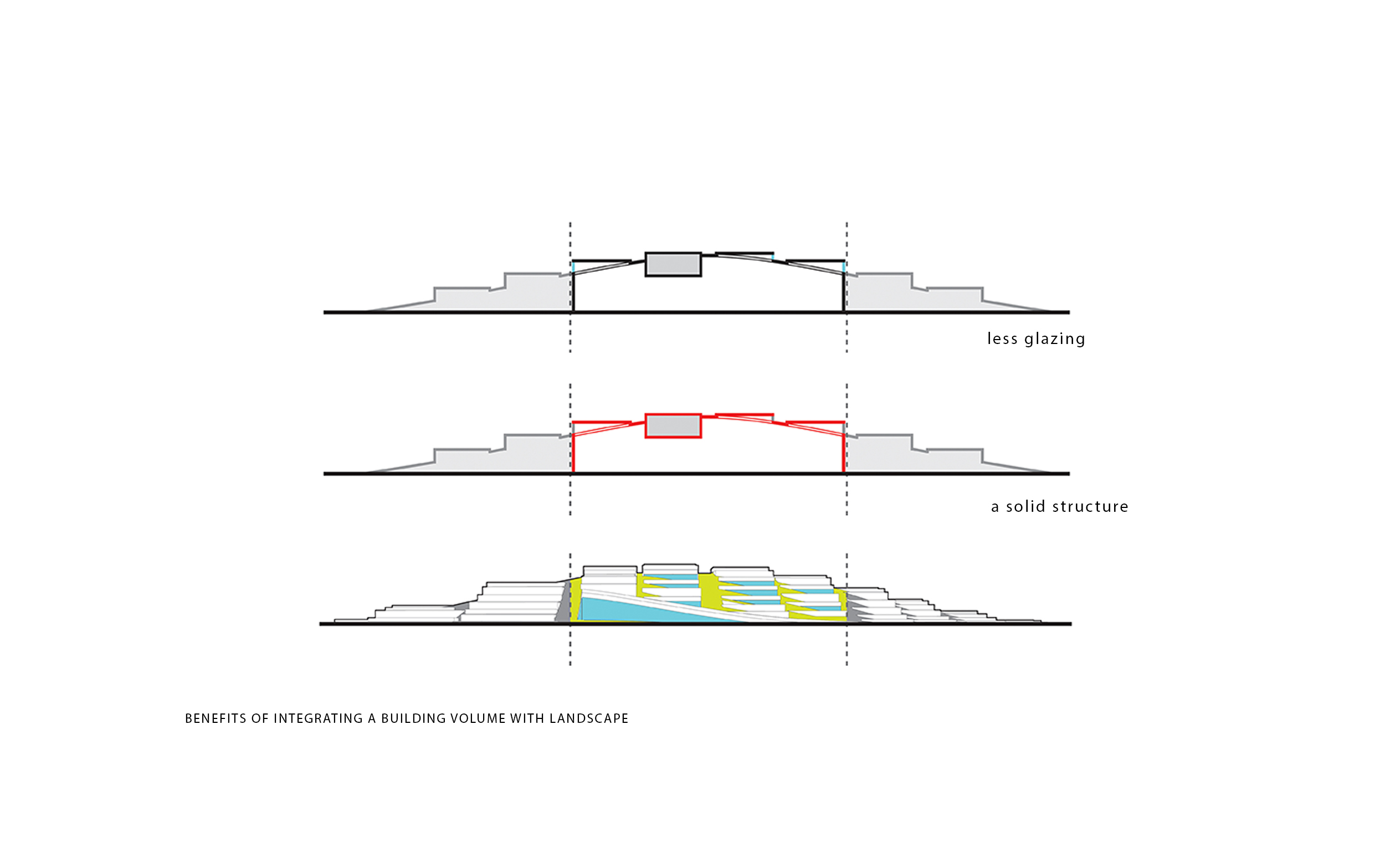
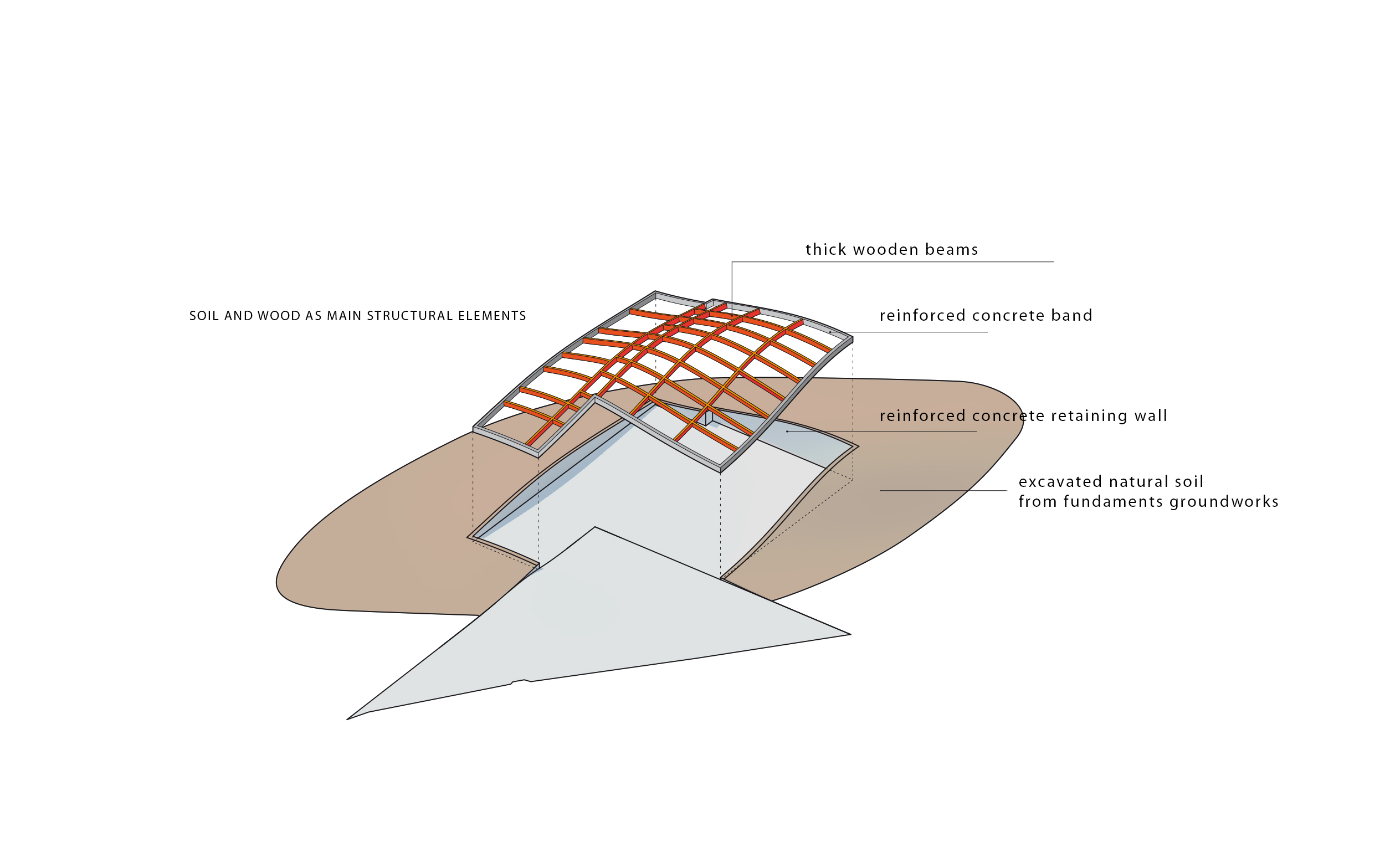
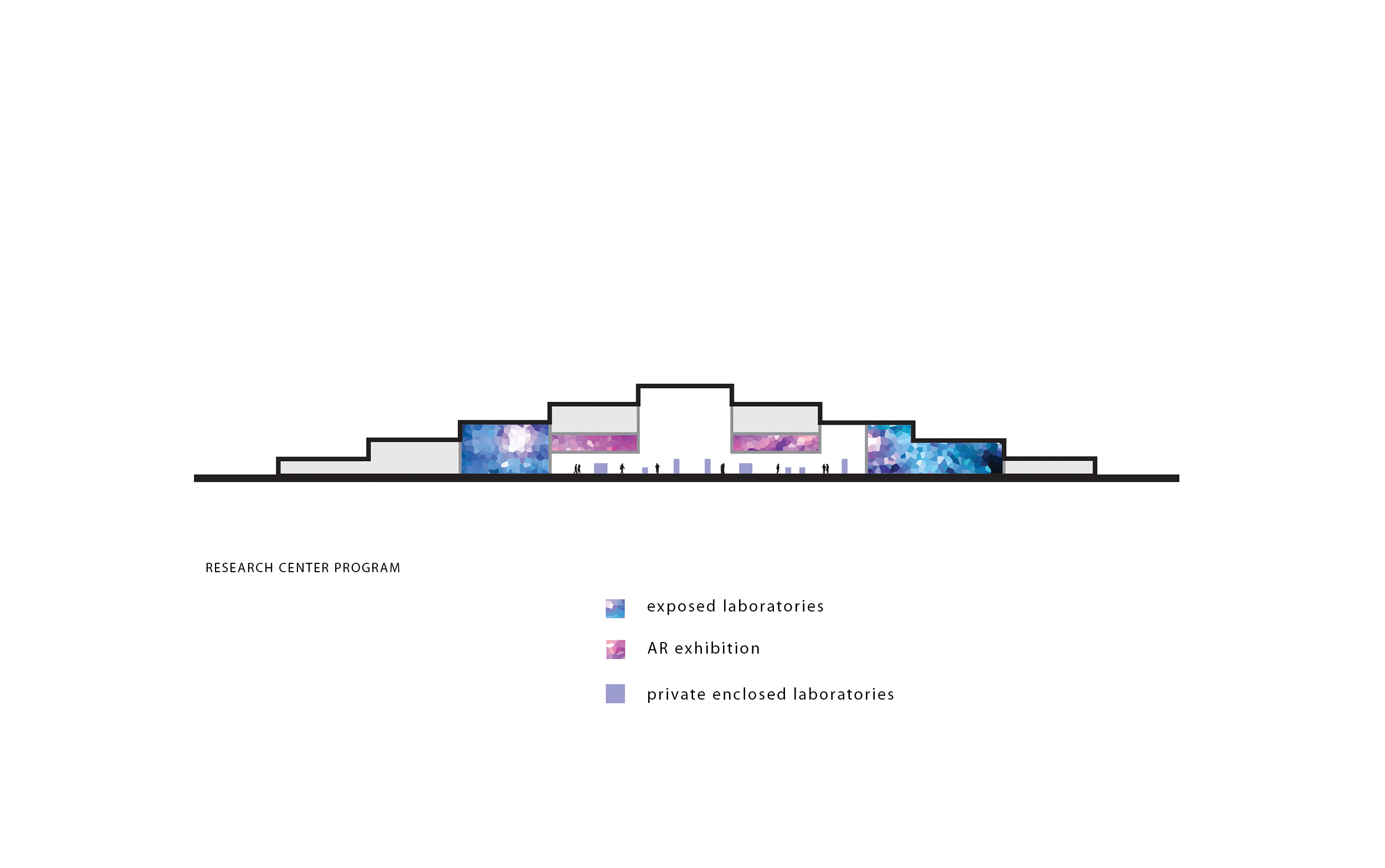
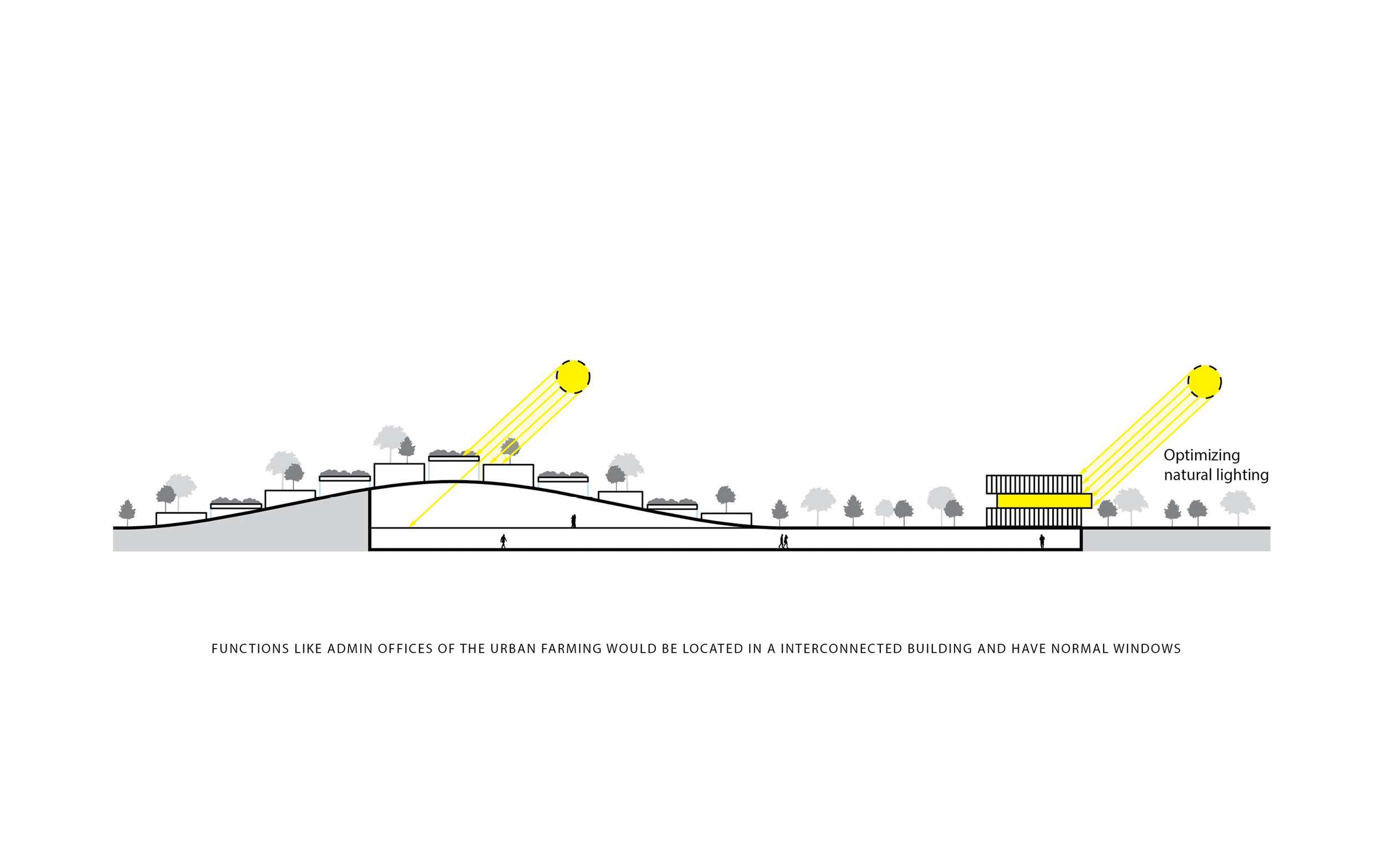
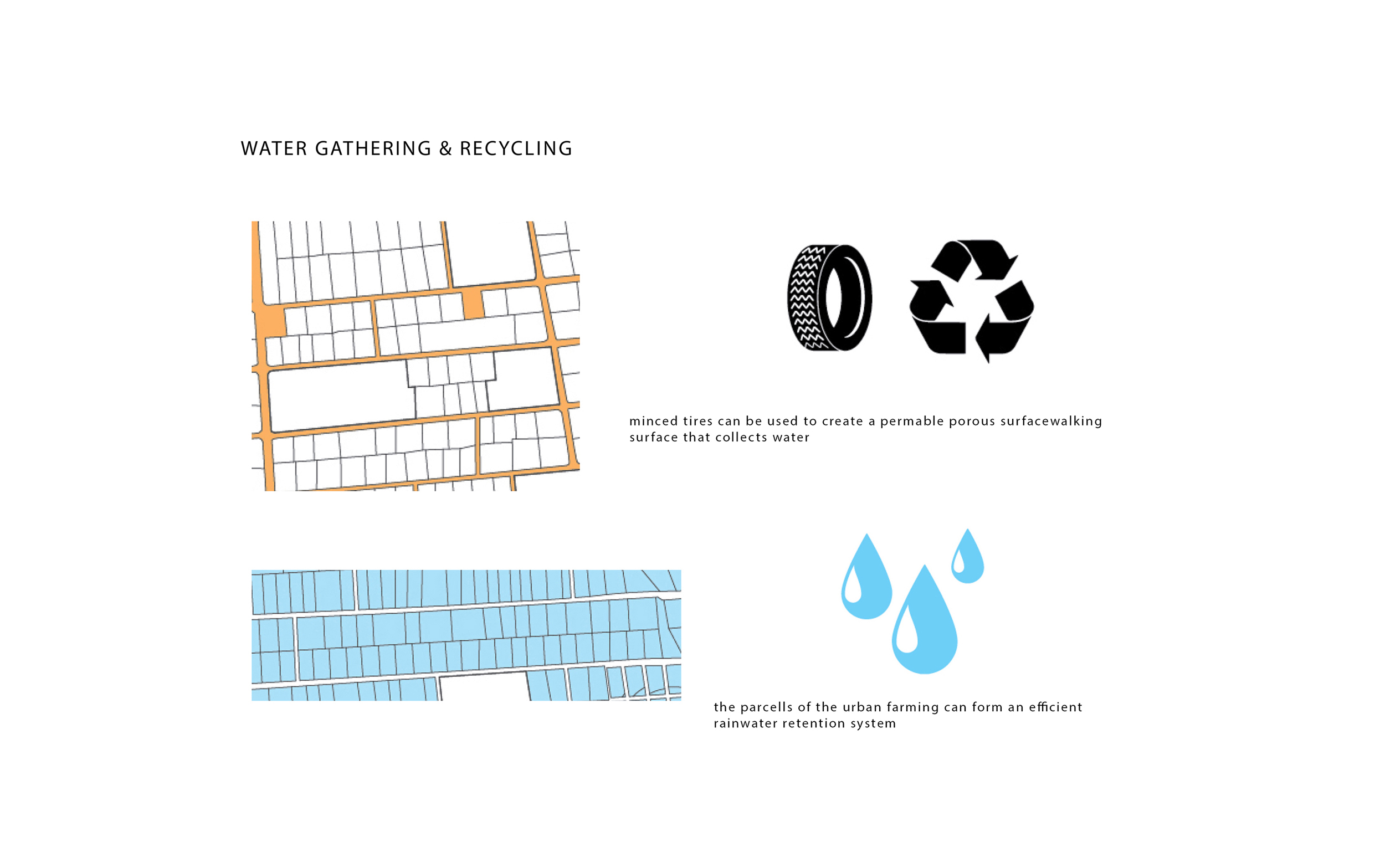

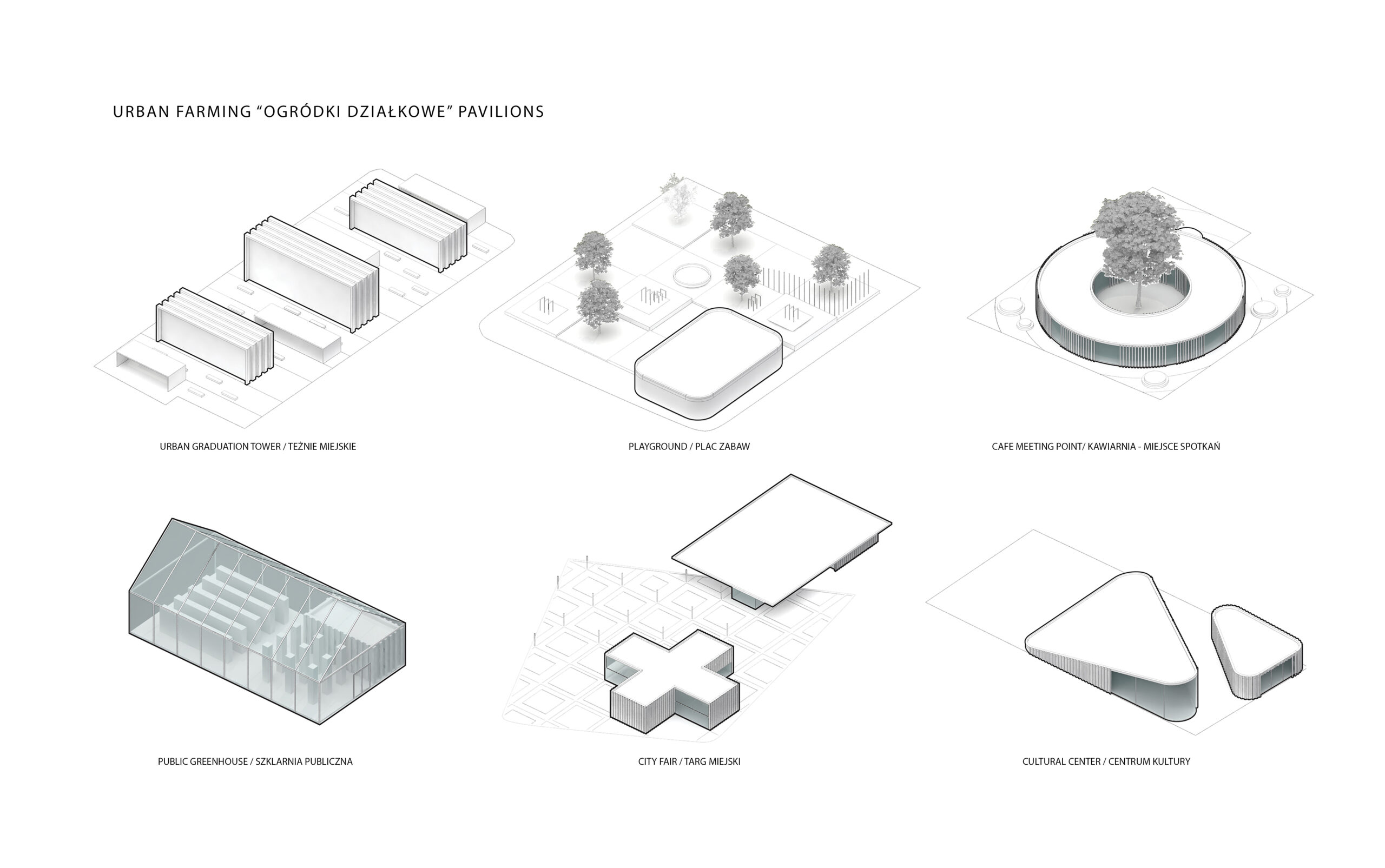
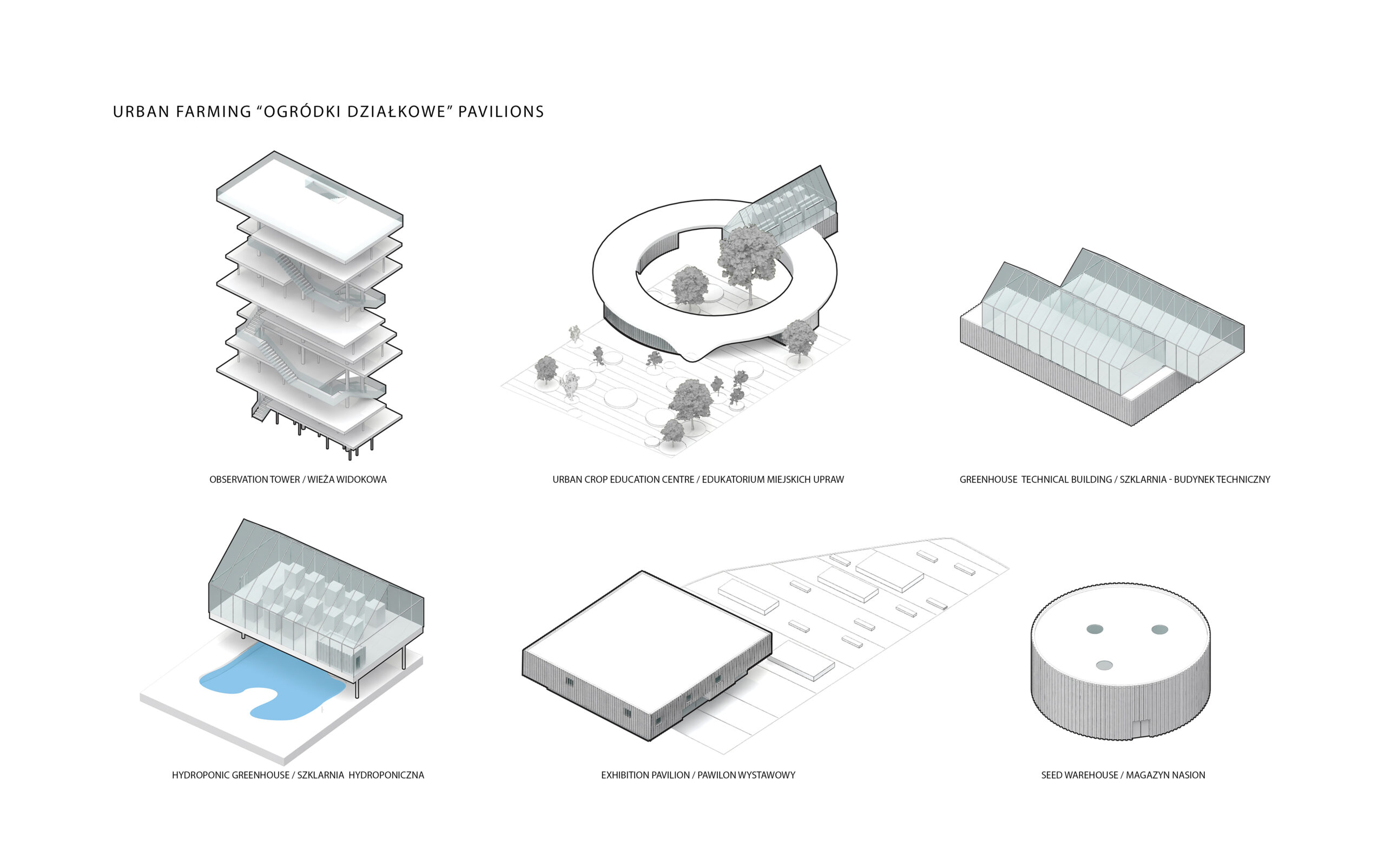
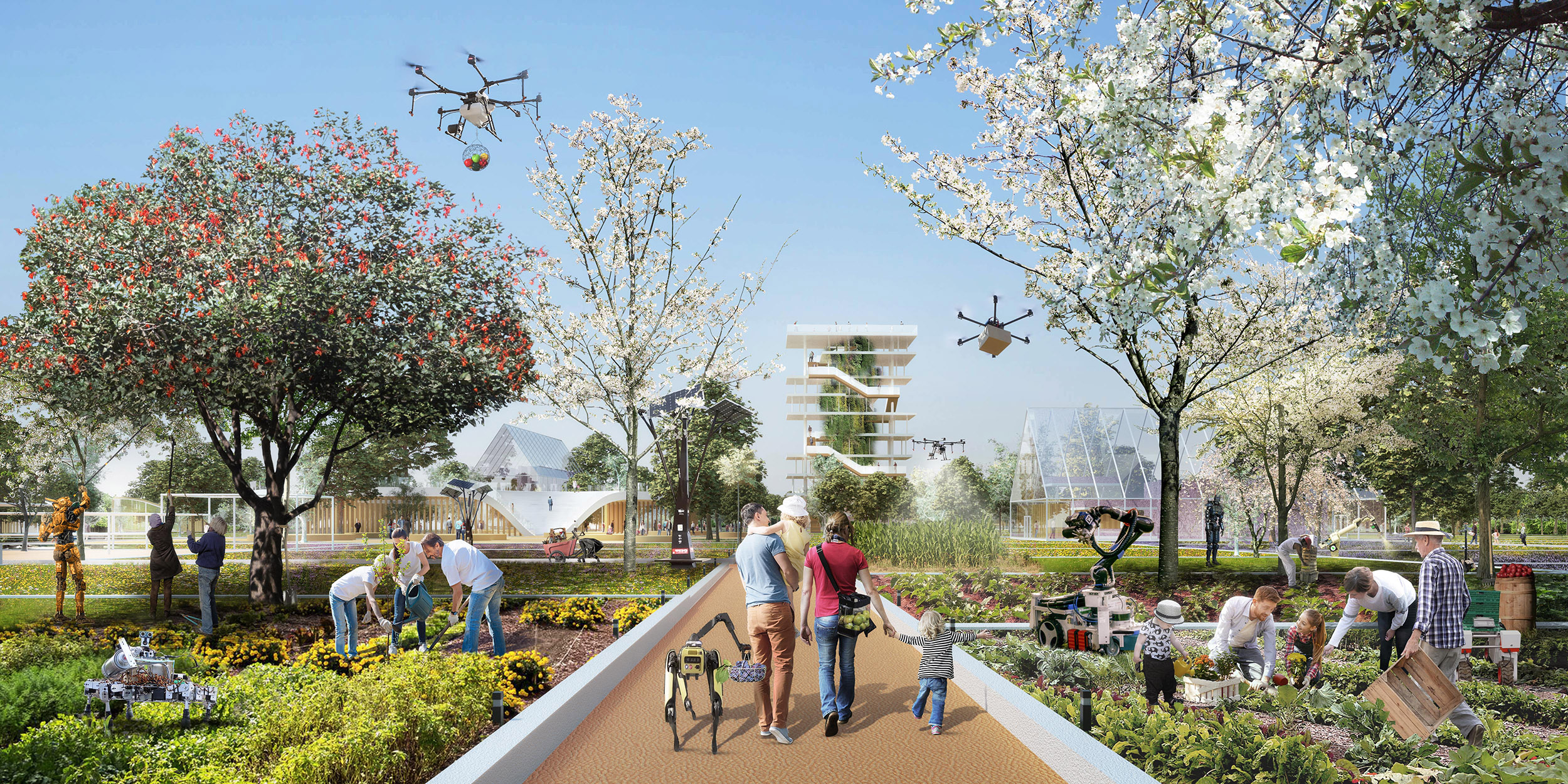
GARDENS OF THE FUTURE
Urban Farming Masterplan & Organic Nutrition Research Center
Based on the research project Urban Agriculture Revival
Introduction:
Urban Farming is being currently introduced in many cities around the world. It is a fairly new posh term but similiar functions appeared in Poland (where MJZ is based) already in the sixties in the XX century. "Ogródki działkowe" were allotment gardens right in the middle of city centers that from the start were related with natural food production. They are a perfect example on how social activities can be combined with a focus on the environment and it's protection. With uncertain GMO qualities and mass food production that is responsible for almost 25% of all CO2 emissions, they could provide an interesting alternative as a healthy , fresh and also relatively cheap scheme. By having products such as vegetables grown and sold in every district in small markets they would be accessible to everyone making intermediaries, which are the biggest cost rising factor in the food delivery chain, obsolete.
Agriculture in cities could become a reality and this development from the past could have it's revival not only in Poland but around the world.
Urban Farming Masterplan:
After the era of the dot-com boom cities stopped evolving and the countryside is the one that is experiencing a technological revolution over the recent decade. This Urban Farming Masterplan Project intends to connect them to get the best from both worlds in one place. Just as grafting in tree agriculture here technology that proved to be successful in the countryside would be implemented on farming plots and merged with the urban tissue. Together with built pavillions these areas could be a perfect location that would act as a testing ground to introduce new technologies and approaches that experiment with growing, researching and selling healthy food grown in the cities. A concept of the Urban Farming fit for the XXI century.
Organic Nutrition Research Center:
To discover and develop a sustainable scheme of green food mass production the Organic Nutrition Research Center would be proposed. Just like plantations it would grow from the soil - it's entire program volume would be positioned underneath a hill created by lifting the urban farming allotment grid. This way the only facade material used during the construction besides the roof layers and natural soil collected during the groundworks phase on the sides, would be the front glazing, skylights and pots for trees and flower fields. The structure would be mostly conceived from engineered timber from certified plantations.
The center would be a big tech- and organic-laboratory with spaces available for guests and more private rooms for experimentation which would not be accesible but still could be visible to everyone when fully glazed. A generous entrance hall would greet the visitors on a daily basis and perform as a roof covered square for educational events on special occasions.
The structure would be based on a wooden waffle resting on concrete walls that support from the sides the excavation soil.
Urban Farming as a mean for resilient cities:
In 2050 half of the population will live in cities- there is not doubt about that these will be the places where people will settle and farmlands will get emptied more over the years to come. But in order to prevent a mass world wide food crisis to happen when a large number of people densifies an area not capable to feed them, cities need to learn from the countryside development. Technological advacements such as hydroponics, robotics or AI which are already being used there could be implemented in the agriculture of cities to boost the production of food surplus before the catastrophe takes place.
As a bi-product of the above cities could grasp these opportunities to become more pleasant for it's inhabitants - less polluted, quiter and more carbon neutral. All biggest advancements in the societies or technology were always related with big worldwide challenges. In past XX century these were wars and now the modern times they will be focused on health risks such as pandemics. Existing urban Farming plots proved already to be the most efficient physical and mental relief steppingstone mechanism in the COVID-19 spread. By popularising this concept we can make cities more resilient to epidemics.
Status: Concept
Typology: Building Project & Masterplan
Architect: MJZ
Consultant: LURE Laboratory for Urban Research & Education
Year: July - September 2019
GARDENS OF THE FUTURE
Organic Nutrition Research Center & Urban Farming Masterplan
Based on the research project Urban Agriculture Revival
Introduction:
Urban Farming is beeing currently introduced in many cities around the world. It is a fairly new posh term but similiar functions appeared in Poland (where MJZ is based) already in the sixties in the XX century. "Ogródki działkowe" were allotment gardens right in the middle of city centers that from the start were related with natural food production. They are a perfect example on how social activities can be combined with a focus on the environment and it's protection. With uncertain GMO qualities and mass food production that is responsible for almost 25% of all CO2 emissions, they could provide an interesting alternative as a healthy , fresh and also relatively cheap scheme. By having products such as vegetables grown and sold in every district in small markets they would be accessible to everyone making intermediaries, which are the biggest cost rising factor in the food delivery chain, obsolete.
Agriculture in cities could become a reality and this development from the past could have it's revival not only in Poland but around the world.
Urban Farming Masterplan:
After the era of the dot-com boom cities stopped evolving and the countryside is the one that is experiencing a technological revolution over the recent decade. This Urban Farming Masterplan Project intends to connect them to get the best from both worlds in one place. Just as grafting in tree agriculture here technology that proved to be successful in the countryside would be implemented on farming plots and merged with the urban tissue. Together with built pavillions these areas could be a perfect location that would act as a testing ground to introduce new technologies and approaches that experiment with growing, researching and selling healthy food grown in the cities. A concept of the Urban Farming fit for the XXI century.
Organic Nutrition Research Center:
To discover and develop a sustainable scheme of green food mass production the Organic Nutrition Research Center would be proposed. Just like plantations it would grow from the soil - it's entire program volume would be positioned underneath a hill created by lifting the urban farming allotment grid. This way the only facade material used during the construction besides the roof layers and natural soil collected during the groundworks phase on the sides, would be the front glazing, skylights and pots for trees and flower fields.
The center would be a big tech- and organic-laboratory with spaces available for guests and more private rooms for experimentation which would not be accesible but still could be visible to everyone when fully galzed. A generous entrance hall would greet the visitors on a daily basis and perform as a roof covered square for educational events on special occasions.
The structure would be based on a wooden waffle resting on concrete walls that support from the sides the excavation soil.
Urban Farming as a mean for resilent cities:
In 2050 half of the population will live in cities- there is not doubt about that these will be the places where people will settle and farmlands will get emptied more over the years to come. But in order to prevent a mass world wide food crisis to happen when a large number of people dencifies an area not capable to feed them, cities need to learn from the countryside development. Technological advacements such as hydroponics, robotics or AI which are already beeing used there could be implemented in the agriculture of cities to boost the production of food surplus before the catastrophe takes place.
As a bi-product of the above cities could grasp these opportunities to become more pleasant for it's inhabitants - less poluted, quiter and more carbon neutral. All biggest advancements in the societies or technology were always realted with big worldwide challenges. In past XX century these were wars and now the modern times they will be focused on health risks such as pandemics. Existing urban Farming plots proved already to be the most efficient physical and mental relief steppingstone mechanism in the COVID-19 spread. By popularising this concept we can make cities more resilient to epidemics.
Status: Concept
Typology: Building Project & Masterplan
Architect: MJZ
Consultant: LURE Laboratory for Urban Research & Education
Year: July - September 2019
